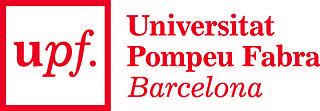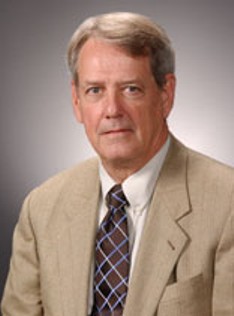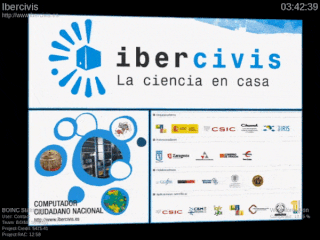An autonomous robot is a robot that acts without recourse to human control. Historic examples include space probes. Modern examples include self-driving vacuums and self-driving cars.

Pompeu Fabra University is a public university located in the city of Barcelona, Catalonia in Spain. The university was created by the Autonomous Government of Catalonia in 1990 and was named after Pompeu Fabra. It is highly competitive in research and has as its goal the transformation of education to meet the challenges of the future. UPF has been ranked the best university in Spain since 2015 and 16th best young university in the world in 2022 by the Times Higher Education World University Rankings.

Health informatics is the study and implementation of computer structures and algorithms to improve communication, understanding, and management of medical information. It can be viewed as a branch of engineering and applied science.

James Sacra Albus was an American engineer, Senior NIST Fellow and founder and former chief of the Intelligent Systems Division of the Manufacturing Engineering Laboratory at the National Institute of Standards and Technology (NIST).

Swarm robotics is an approach to the coordination of multiple robots as a system which consist of large numbers of mostly simple physical robots. ″In a robot swarm, the collective behavior of the robots results from local interactions between the robots and between the robots and the environment in which they act.″ It is supposed that a desired collective behavior emerges from the interactions between the robots and interactions of robots with the environment. This approach emerged on the field of artificial swarm intelligence, as well as the biological studies of insects, ants and other fields in nature, where swarm behaviour occurs.
Developmental robotics (DevRob), sometimes called epigenetic robotics, is a scientific field which aims at studying the developmental mechanisms, architectures and constraints that allow lifelong and open-ended learning of new skills and new knowledge in embodied machines. As in human children, learning is expected to be cumulative and of progressively increasing complexity, and to result from self-exploration of the world in combination with social interaction. The typical methodological approach consists in starting from theories of human and animal development elaborated in fields such as developmental psychology, neuroscience, developmental and evolutionary biology, and linguistics, then to formalize and implement them in robots, sometimes exploring extensions or variants of them. The experimentation of those models in robots allows researchers to confront them with reality, and as a consequence, developmental robotics also provides feedback and novel hypotheses on theories of human and animal development.

Stephen Grossberg is a cognitive scientist, theoretical and computational psychologist, neuroscientist, mathematician, biomedical engineer, and neuromorphic technologist. He is the Wang Professor of Cognitive and Neural Systems and a Professor Emeritus of Mathematics & Statistics, Psychological & Brain Sciences, and Biomedical Engineering at Boston University.
Neuroinformatics is the emergent field that combines informatics and neuroscience. Neuroinformatics is related with neuroscience data and information processing by artificial neural networks. There are three main directions where neuroinformatics has to be applied:
The Denning Mobile Robot Company of Boston was the first company to offer ready-made autonomous robots that were subsequently purchased primarily by researchers. Grinnell More's Real World Interface, Inc. (RWI) and James Slater's Nomadic Technologies (US), along with Francesco Mondada's K-Team (Switzerland), were other pioneering companies in this field, addressing the need for ready-made robots for use by robotics researchers. RWI created the B-21, Nomadic the XR4000, whilst the tiny Khepera mobile robot emerged from the stables of the Swiss K-Team. However, the high price of these machines meant that only a few graduate students and military researchers could afford them. Eventually, the low-cost Pioneer robot was introduced in 1995, a project that expanded research in mobile robotics due to the affordable price.

New Bulgarian University is a private university based in Sofia, the capital of Bulgaria. Its campus is in the western district of the city, known for its proximity to the Vitosha nature park. The university also owns multiple other buildings across the country, as well as its own publishing house and a library.
Robotics is the branch of technology that deals with the design, construction, operation, structural disposition, manufacture and application of robots. Robotics is related to the sciences of electronics, engineering, mechanics, and software. The word "robot" was introduced to the public by Czech writer Karel Čapek in his play R.U.R., published in 1920. The term "robotics" was coined by Isaac Asimov in his 1941 science fiction short-story "Liar!"

Microsoft Robotics Developer Studio is a discontinued Windows-based environment for robot control and simulation that was aimed at academic, hobbyist, and commercial developers and handled a wide variety of robot hardware. It requires a Microsoft Windows 7 operating system or later.

The Technical Research Centre for Dependency Care and Autonomous Living (CETpD) is an applied research and technology transfer centre created for the Universitat Politèncica de Catalunya and the Fundació Hospital Comarcal Sant Antoni Abat on behalf of the Consorci de Servei a les Persones de Vilanova i la Geltrú, with the aim of covering the demand for research and development in the field of Gerontechnology, Ambient Intelligence, Assistive Robotics and User Experience Technologies.

Ibercivis was a volunteer computing platform which allows internet users to participate in scientific research by donating unused computer cycles to run scientific simulations and other tasks. The original project, which became operational in 2008, was a scientific collaboration between the Portuguese and Spanish governments, but it is open to the general public and scientific community, both within and beyond the Iberian Peninsula. The project's name is a portmanteau of Iberia and the Latin word civis, meaning 'citizen'.

The Spanish National Health System is the agglomeration of public healthcare services that has existed in Spain since it was established through and structured by the Ley General de Sanidad of 1986. Management of these services has been progressively transferred to the distinct autonomous communities of Spain, while some continue to be operated by the National Institute of Health Management, part of the Ministry of Health and Social Policy. The activity of these services is harmonized by the Interterritorial Council of the Spanish National Health Service in order to give cohesion to the system and to guarantee the rights of citizens throughout Spain.

Robotnik Automation S.L.L. is a Spanish company that specializes in robot product development and robotics R&D projects. Robotnik is based in Valencia (Paterna) in Spain.
Cognitive computing refers to technology platforms that, broadly speaking, are based on the scientific disciplines of artificial intelligence and signal processing. These platforms encompass machine learning, reasoning, natural language processing, speech recognition and vision, human–computer interaction, dialog and narrative generation, among other technologies.
Cloud robotics is a field of robotics that attempts to invoke cloud technologies such as cloud computing, cloud storage, and other Internet technologies centered on the benefits of converged infrastructure and shared services for robotics. When connected to the cloud, robots can benefit from the powerful computation, storage, and communication resources of modern data center in the cloud, which can process and share information from various robots or agent. Humans can also delegate tasks to robots remotely through networks. Cloud computing technologies enable robot systems to be endowed with powerful capability whilst reducing costs through cloud technologies. Thus, it is possible to build lightweight, low-cost, smarter robots with an intelligent "brain" in the cloud. The "brain" consists of data center, knowledge base, task planners, deep learning, information processing, environment models, communication support, etc.
The Faculty of Computing and Engineering is one of six educational and research faculties of Ulster University. The faculty is made up of four schools and three research institutes. The faculty is spread across the Ulster University at Belfast, Coleraine and Magee campus' of the University. The Faculty represents the university as a member of the Engineering Professors' Council (EPC), which is the representative body for Engineering in UK higher education.

Elena Garcia Armada is a Spanish researcher, roboticist, business founder and industrial engineer who leads the CSIC group at the Center for Automation and Robotics, (CAR) CSIC-UPM that has developed the first bionic exoskeleton for children with spinal muscular atrophy, for which she received the European Inventor Award Popular Prize in 2022.












